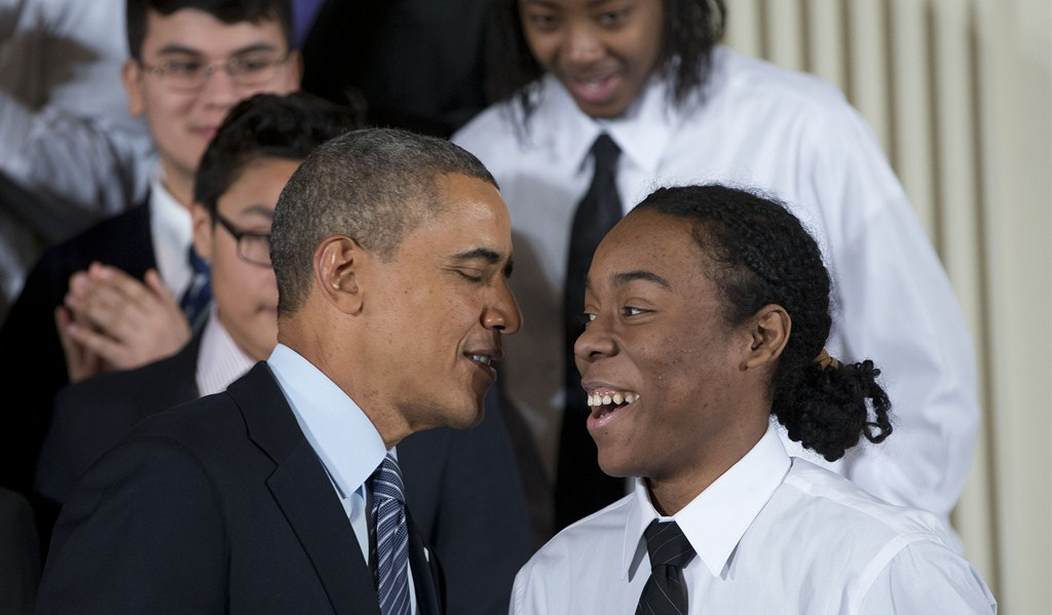Cain was a witty fellow. He asked one of the best-known rhetorical questions, “Am I my brother’s keeper?” Of course he was not. But that was irrelevant. He was covering up something. About what he had done to his brother.
So, when I hear the phrase “my brother’s keeper,” I look around for casualties.
Earlier this year we saw President Obama more than Abel to raise Cain’s phraseology. His “My Brother’s Keeper” initiative is a $200 million public-private partnership to help mentor and assist young black and Latino boys in maneuvering the admittedly treacherous terrain of growing up.
Since this is an official government program — despite the private funding — the first question about it and being one’s “brother’s keeper” is whether we mean only brothers and not sisters, and only men “of color” and not those men whose color is commonly called “white” and with a preponderance of genetic ancestry hailing from Europe.
In no time, there arose protests about the unfairness of the program’s exclusivity.
A group of 210 prominent black men, including actor Danny Glover, signed a letter to President Obama urging him to include women “of color” in the My Brother’s Keeper program. Then more than 1,000 women of equal color and equal, though gender-disadvantaged, prominence delivered their own letter to the president.
Applauding “the efforts on the part of the White House, private philanthropy, social justice organizations and others to move beyond colorblind approaches to race-specific problems,” the ladies’ letter, publicized by the African American Policy Forum, expressed being “profoundly troubled about the exclusion of women and girls of color from this critical undertaking. The need to acknowledge the crisis facing boys should not come at the expense of addressing the stunted opportunities for girls who live in the same households, suffer in the same schools, and struggle to overcome a common history of limited opportunities caused by various forms of discrimination.”
Recommended
Nonetheless, the White House, where women also suffer an unconscionable 13 percent pay gap compared to men, continues to exclude women — even women of color — from official societal membership in the My Brother’s Keeper club.
And what about the poor, seemingly colorless, white boys or girls who might need some help? Excluded. No rooms for whites or women at this particular inn.
Let’s not get carried away, though. Sometimes structuring programs by race or gender makes sense — when addressing problems that are uniquely felt by or solved due to factors specific to race or gender. The letter to Obama from those 1,000 women did refer to “race-specific problems.”
Is that so? Are the problems facing poor black and Latino boys essentially about them being
- poor?
- black or Latino?
- boys?
Whites and women of all races can be poor. Women can be black or Latino. Boys can be white.
“Obama and civil rights advocates point to statistics that show that relative to their white counterparts, African American, Latino and Native American boys are more likely to live in low-income communities with high rates of crime, be raised by single mothers, and to attend poor-performing schools,” The Washington Postreported.
Yes, Native Americans were added to the list of privileged poor after the program’s launch, and Asian American boys, too. But not European Americans.
Still, regardless of which racial categories rack up the worst percentages in a rapid race to the bottom, this society must better address these serious problems of (1) policing in poor communities, (2) single-parenthood, and (3) “poor-performing schools.” And in doing so, we must realize that crime and poverty and broken families and bad schools touch every race and gender.
Which brings to mind another 2014 development. Like “My Brother’s Keeper,” it’s a story about which I meant to write, but somehow never got around to. In June, California Superior Court Judge Rolf M. Treu decided a very consequential lawsuit, Vergara v. California, brought by nine “disadvantaged” students against the state’s school system. He declared that teacher tenure and other “protections” teachers have against dismissal from their positions are unconstitutional because by locking-in poor performing teachers the students they teach are denied their “right” to an education.
In short, the judge found what many of us have long known: the public schools work to protect unionized teachers, not “the children.”
Students Matter, the group behind the Vergara v. California lawsuit, is now litigating a similar case in New York — and looking at other states, too. These folks seem to understand that there’s more to helping the poor than merely appearing to do so.
Indeed, they understand a huge stumbling block to educational improvement. Just as the politics of race gets in the way of actually helping the poor, the politics of placating powerful, electorally-sophisticated teachers unions gets in the way of providing these same poor kids the opportunity of an education.
It’s not easy doing good. But it’s not difficult to waste other people’s money, or to serve yourself — maybe merely by concentrating on looking or sounding good — while mouthing popular slogans.
Our job is not to be fooled by clever folks trotting out slippery slogans.

























Join the conversation as a VIP Member